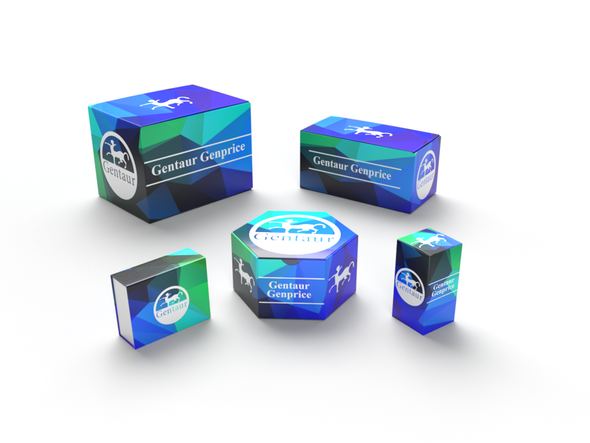740
Bovine Ferrochelatase, mitochondrial (FECH) ELISA Kit | AE58769BO
- SKU:
- 740-AE58769BO
- Availability:
- Usually ships in 5 working days
Description
Bovine Ferrochelatase, mitochondrial (FECH) ELISA Kit | AE58769BO | Gentaur UK, US & Europe Distribution
Species Reactivity: Bovine (Bos taurus; Cattle)
Abbreviation: FECH
Alternative Name: EPP; FCE; ferrochelatase|heme synthetase|protoheme ferro-lyase
Application: ELISA
Range: 0.156-10 ng/mL
Sensitivity: 0.056 ng/mL
Intra-Assay: ≤3.9%
Inter-Assay: ≤6.2%
Recovery: 0, 93
Sample Type: Serum, Plasma, Other biological fluids
Detection Method: Sandwich
Analysis Method : Quantitive
Test Principale: This assay employs a two-site sandwich ELISA to quantitate FECH in samples. An antibody specific for FECH has been pre-coated onto a microplate. Standards and samples are pipetted into the wells and anyFECH present is bound by the immobilized antibody. After removing any unbound substances, a biotin-conjugated antibody specific for FECH is added to the wells. After washing, Streptavidin conjugated Horseradish Peroxidase (HRP) is added to the wells. Following a wash to remove any unbound avidin-enzyme reagent, a substrate solution is added to the wells and color develops in proportion to the amount of FECH bound in the initial step. The color development is stopped and the intensity of the color is measured.
Product Overview: Ferrochelatase (FECH, protoheme ferrolyase) is an enzyme that catalyses the terminal (eighth) step in the biosynthesis of heme, converting protoporphyrin IX into heme. It catalyses reaction: protoporphyrin + Fe++ <=> protoheme + 2 H+. A ferrochelatase enzyme consists of 497 amino acid residues with a m.w. of 55.4 kDa. Ferrochelatase is localized to the mitochondrion where it catalyzes the insertion of the ferrous form of iron into protoporphyrin IX in the heme synthesis pathway. Defects in ferrochelatase are associated with erythropoietic protoporphyria. Two transcript variants encoding different isoforms have been found for this gene.
Stability: The stability of ELISA kit is determined by the loss rate of activity. The loss rate of this kit is less than 5% within the expiration date under appropriate storage condition. The loss rate was determined by accelerated thermal degradation test. Keep the kit at 37°C for 4 and 7 days, and compare O.D.values of the kit kept at 37°C with that of at recommended temperature. (referring from China Biological Products Standard, which was calculated by the Arrhenius equation. For ELISA kit, 4 days storage at 37°C can be considered as 6 months at 2 - 8°C, which means 7 days at 37°C equaling 12 months at 2 - 8°C) .






